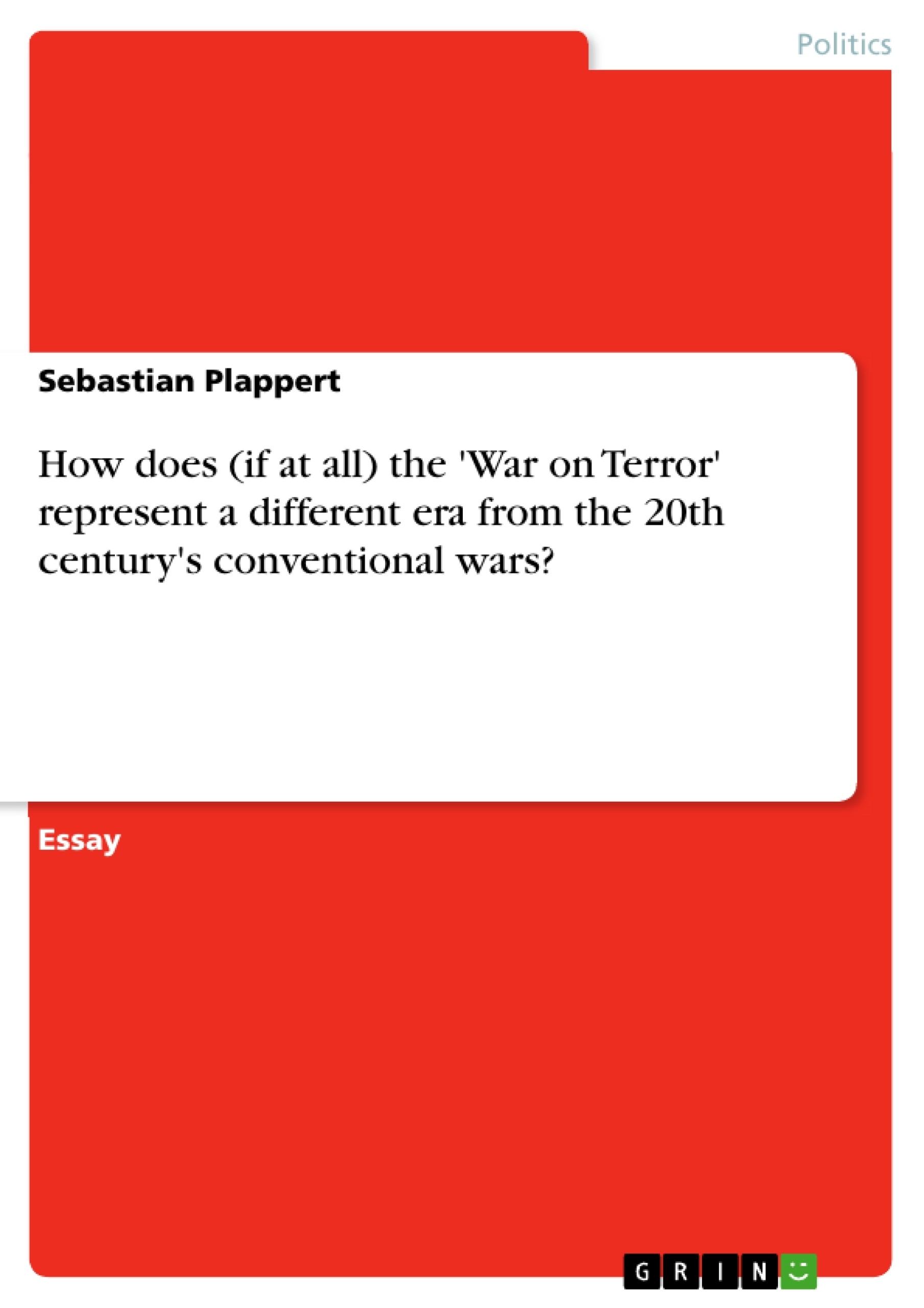Despite the persistence of traditional threats, the current ‘War on Terror’ represents the current mode of conflict's transition into a new era of warfare. After shortly reviewing the traditionalist position, the paper will examine the characteristics of current warfare in the effort to combat terrorism. Thereby a closer look will be taken at the nature of potential enemies, their operational setting and the role of information and media, before drawing on the evaluation of modern warfare in an age of globalisation.
Inhaltsverzeichnis (Table of Contents)
- Old wine in new bottles
- Great Powers remain
- The new world order
- New enemies
- The global battlefield of the information age
Zielsetzung und Themenschwerpunkte (Objectives and Key Themes)
This essay argues that despite the persistence of traditional threats, the current “War on Terror” represents a shift in the mode of conflict, marking a new era of warfare. After reviewing the traditionalist view, it examines the characteristics of modern warfare in the context of combating terrorism. It examines the nature of potential enemies, their operational setting, the role of information and media, and the implications of globalization on modern warfare.
- The 'War on Terror' represents a new era of warfare beyond traditional 20th-century conflicts.
- The nature of warfare has shifted due to changes in the strategic environment, the rise of non-state actors, and the impact of globalization on information and communication.
- Terrorism, as a strategic tool, has become a defining characteristic of this new era, challenging traditional methods of combat and state-centric approaches to security.
- The globalized nature of conflict necessitates new approaches to intelligence gathering, communication strategies, and the management of information.
- The “War on Terror” is a battle of both arms and ideas, highlighting the importance of public diplomacy and understanding the motivations and perceptions of local populations.
Zusammenfassung der Kapitel (Chapter Summaries)
The essay begins by presenting the traditionalist perspective, which argues that the "War on Terror" is simply a continuation of conventional warfare with technological advancements, emphasizing that war remains fundamentally subject to political will. It then moves to discuss the “new world order” of warfare, where globalization and the rise of non-state actors have fundamentally altered the nature of conflict. This new era is characterized by the emergence of asymmetric conflicts, the increasing importance of information and communication, and the blurring of lines between terrorism, civil war, and crime. The essay explores the unique challenges posed by non-state actors, their ability to operate in a globalized environment, and the challenges of identifying and combating them in the context of urban environments. Finally, the essay delves into the impact of globalization on the battlefield of information, highlighting the need for new approaches to intelligence, communication strategies, and the manipulation of global media narratives. The essay emphasizes the importance of public diplomacy and understanding the motivations and perceptions of local populations in this new era of warfare.
Schlüsselwörter (Keywords)
The primary focus of this essay lies on the evolution of warfare in the context of the "War on Terror." It explores key concepts such as globalization, asymmetric warfare, non-state actors, terrorism, intelligence gathering, communication strategies, media manipulation, and public diplomacy. The essay examines the limitations of traditional approaches to warfare in dealing with the complexities of contemporary conflict and explores the need for new strategies to address the challenges posed by this new era of warfare.
Frequently Asked Questions
How does the 'War on Terror' differ from conventional wars?
Unlike traditional state-vs-state conflicts, it involves non-state actors, asymmetric tactics, and a global battlefield where media and information play a crucial role.
What role does globalization play in modern warfare?
Globalization enables non-state actors to operate across borders, use global communication networks for propaganda, and challenges traditional state-centric security approaches.
What is "asymmetric warfare"?
It refers to conflict where the opposing sides have significantly different military capabilities and tactics, often with a weaker force using unconventional methods like terrorism against a superpower.
Why is the media important in the 'War on Terror'?
Modern conflict is as much about winning "hearts and minds" as it is about military victory. Media narratives influence public opinion and the perceived legitimacy of military actions.
Is the 'War on Terror' just "old wine in new bottles"?
While some traditional geopolitical threats remain, the essay argues that the nature of the enemy and the operational environment have fundamentally changed.
- Quote paper
- Sebastian Plappert (Author), 2007, How does (if at all) the 'War on Terror' represent a different era from the 20th century's conventional wars? , Munich, GRIN Verlag, https://www.grin.com/document/153912



